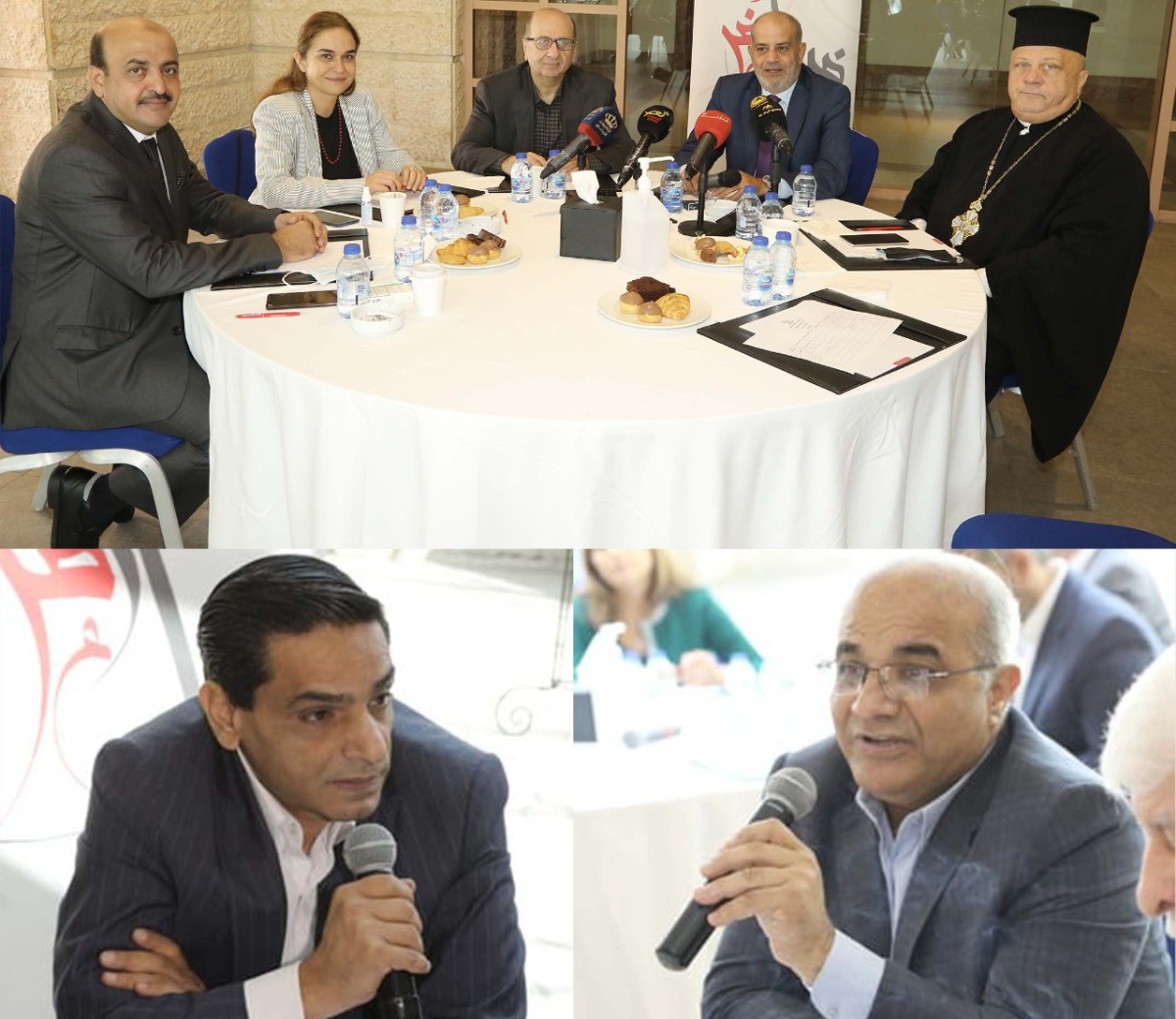Al Nahda Cultural Forum at the Arab Renaissance for Democracy and Development (ARDD), on September 26 hosted a dialogue session for candidates vying for the position of head of Jordan Press Association (JPA). The discussions centered around media rights and freedoms, and the extent to which the issue is present in the candidates’ electoral programs. They also underlined how important it is for human rights and freedoms to be among the objectives of their electoral programs, urged the JPA to bear in mind the legislation governing the media, which guarantees the rights of its members, expand the membership base, and bolster the capacity of the media.
Thirty-five media professionals from various media outlets took part in the discussions. Tareq Al-Momani and Rakan Al-Sa’aida reviewed the obstacles facing the Jordanian media and journalists and urged new solutions to overcome them. Candidate Falha Breizat was absent.
Talk about the real situation concerning media freedoms and performance is constantly heard, yet progress is not visible.
The media in Jordan need more professionalism and to develop its self-regulation capacity, bearing in mind that media freedoms and the professional conduct of journalists are of a real national interest.
Al-Momani said that the media have been clearly targeted, starting with the weekly newspapers, and continuing, nowadays, with news websites and daily newspapers, pointing out that there are more than 20 laws that obstruct media work and its progress.
He also stressed that the need to amend the legislation related to the media should be the focus of the work of the upcoming syndicate council, adding that neither workers in this field nor the responsible authorities have an accurate understanding of the media.
According to Al-Momani, there are great challenges facing the media, including the living conditions of journalists and arbitrary dismissals, and these should be addressed through cooperation among concerned institutions and state agencies.
Al-Sa’aida deemed the most important challenge facing the media today as being the deterioration of the living condition of journalists and the absence of job stability for them, which makes one wonder whether the government wants media to operate in the country at all.
He believes that the current situation makes it incumbent on the government to understand the message of the media and its real role in conveying people’s voices and shaping public opinion, and stressed the need for the Syndicate Council to work with the government and all other institutions.
Al-Sa’aida also said that the Syndicate Council needs to exert greater effort in these times, and that it is responsible for rectifying the situation of journalists, which entails guaranteeing their rights and freedoms and improving their living conditions.
The chairman of Al Nahda Arab Cultural Forum, Basil Al-Tarawneh, stressed the importance of guaranteeing human rights and media freedoms, implicitly preserving the freedom of journalists, warning that there should exist a well-studied mechanism in media work that seeks accuracy, credibility and professionalism.
ARDD CEO Samar Muhareb said that the civil society, the government and the media work should be intertwined, stressing that the civil society finds difficulties in explaining and presenting its work and goals through the media.
Muhareb called for new and effective solutions that guarantee media freedoms and improve the work of the media, and that requires oversight, greater effort and continuous training for workers in this field, especially young people.
The participants believe that the media in Jordan suffer under the restrictions and existing legislation, and that challenges burden journalists and their syndicate. They also stressed that the government should double its efforts, and coordinate and cooperate with the media, as a basis for the process of bettering the society, educating people and helping make their voices heard.
The speakers emphasized that saving newspapers is in the national interest, as they are the backbone of the Jordanian press. They also said one of the problems facing the media is managing newspapers.
They pointed out that many “intruders” penetrated the press community, contributing to a loss of credibility for the traditional media, and called for accountability for these abusers who show no professionalism and respect for the media code of honor in their work.
The participants urged a comprehensive review of all legislation related to the media, a unified legislative policy that respects human rights vis-à-vis the media.
Some speakers also urged JPA to find practical solutions to improve the image of the media, by having all parties hold extensive meetings and dialogue and a great national effort to improve work in this field.
The participants said that the national reform system, which focuses on economic and social reforms, should also consider reforming the media and presenting them as important tools for the society.
They indicated that JPA should be the strongest civil society institution, and that the government has no option but to support this association and its members because the media need to be seen as strong authorities that bring about change.
These media professionals urged the government to abide by its commitment to promote openness and maintain communication with various media outlets, to provide an environment appropriate for the work of responsible media and secure their freedoms, and to amend legislation regulating journalistic work.
They said that media freedoms cannot be achieved without professional development, developing the capacity of the media professionals to organize themselves, and putting an end to harassing and imprisoning journalists.
The guests of the Arab Renaissance Cultural Forum monthly sessions were Dana Jumblatt, former director of the Anti-Money Laundering and Counter-Terrorism Unit, and retired Brigadier General, Director of Transparency and Human Rights in Public Security Hossam Al-Majali Al-Tarawneh expressed his appreciation for their role in upholding human rights.


